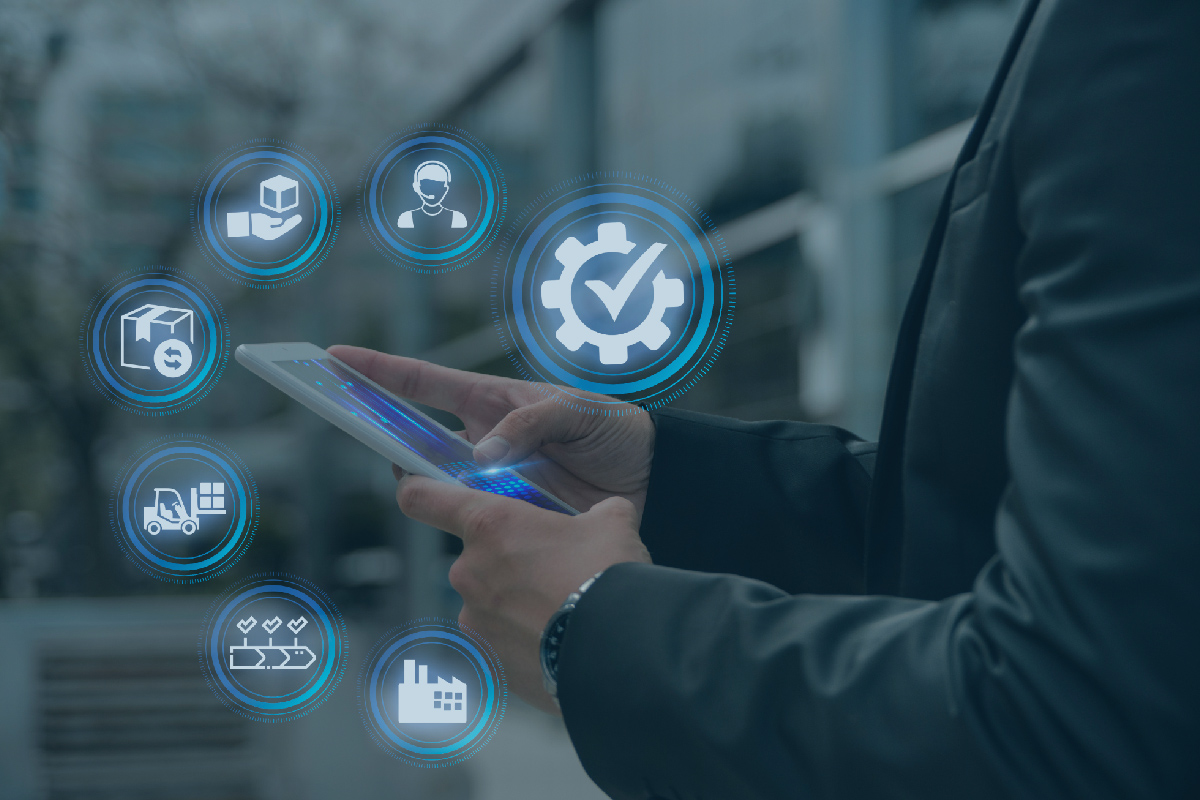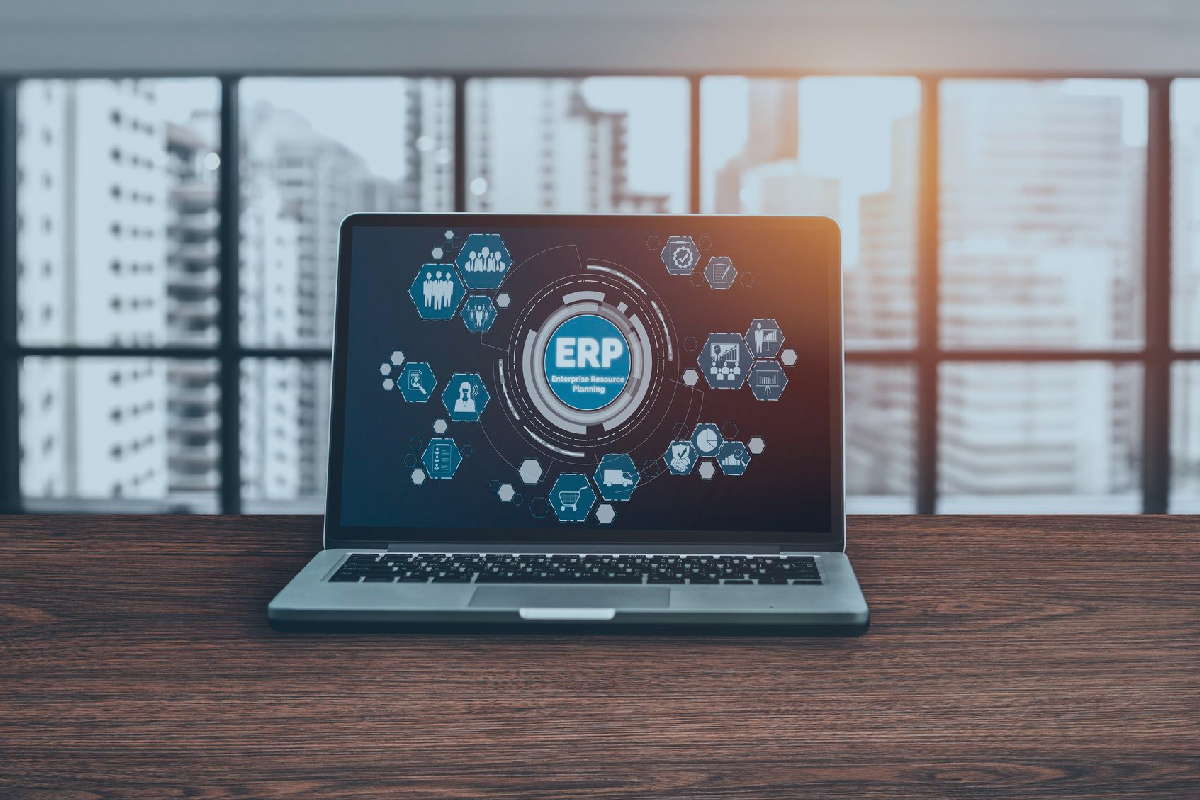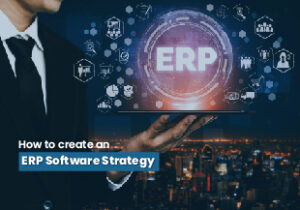Business organizations are going to search for making work easier and faster. Not each software does the same work in that way as does an ERP, or an Enterprise Resource Planning system. An ERP puts together and controls the important functions of any organization. These would include finance, inventory, human resources, and sales, all under one platform. In this article, we will describe the major parts of ERP systems, why B2B integration is vital for webshops, and how it can alter business operations for ERP B2B integration.
What is an ERP System? An ERP system enables companies to carry out and automate most of the tasks that occur within an organization. The primary goal of an ERP system is to simplify the process of tracking, analyzing, and managing business activities through the gathering of information from all departments. This single central system connects all elements of a business and, therefore, breaks barriers in the communication process between the various departments.
Components of ERP Systems
An ERP system consists of different modules and is designed to manage the various aspects of a business. Let’s discuss components of erp system in detail:
Inventory Management
Managing inventory is very important for any business, especially for those that sell products or make them. The inventory management part of an ERP system helps businesses keep an eye on their stock levels right away so that they do not run out of products or have too many items.
Important parts of an ERP inventory management system are:
- Monitor stocks: Monitor the quantities and locations of the products.
- Order management: Streamline the process of ordering, from purchase orders to sales orders with best ERP for food manufacturing.
- Warehouse management: Make warehouse processes automatic to work better.
- Real-time updates: Analyze how information from stock quantities allows best procurement purchase choices.
A good inventory management system helps businesses save money, avoid running out of stock, and ensure that they have the right products ready for customers when they want them.
Finance and Accounting
Money management is an essential thing in any business. Finance part of the ERP system controls all aspects of financial activities and maintains the record, budgets, finances reports, and ensures that one does not break tax laws.
Important parts of an ERP finance and accounting system include:
- Invoicing and billing: Producing the accurate invoice for all customer orders and processing payments collection.
- Budget: Develop and control budgets for all departments and projects.
- Financial reporting: Prepare financial statements, balance sheets, and profit and loss reports.
- Tax compliance: Automatically calculate taxes and adhere to local tax regulations.
An ERP system automates financial processes. This reduces human errors and makes things more accurate and gives immediate information about the financial state of the business.
Human Resources(HR)
The human resources part of an ERP system helps businesses manage their employees well. From hiring to paying employees, managing performance to training, an ERP system can make all HR tasks easier.
Important parts of an ERP HR system are:
- Employee records management: All details, whether personal, or of jobs assigned, and pay, related to an employee.
- Payroll management: It can automatically calculate payroll and make timely payments.
- Recruitment: Manage the hiring process, from posting job openings to tracking applications.
- Performance management: Monitor the performance of employees and set goals for professional development.
An ERP HR module helps businesses reduce administrative burdens, ensures compliance with labor laws, and provides a better employee experience.
Sales and CRM (Customer Relationship Management)
A CRM module, which is part of an ERP system, enables businesses to handle their interactions with customers. The sales and CRM module, part of the best ERP and CRM software, is designed to assist businesses in enhancing customer service, in monitoring chances for sales, and relationships with existing and potential customers.
Important parts of any ERP sales and CRM system are:
- Lead and opportunity management: monitor sales leads, opportunities, and conversions.
- Order management: Automate order processing, including order creation, tracking, and delivery.
- Customer service: Enhance customer support by responding quickly and solving issues.
- Sales analytics: Learn about sales trends and how customers act to make sales strategies better.
Through incorporating sales and CRM functions in the ERP system, businesses can improve the kind of customer service offered to increase sales and build a strong bond with their customers.
Managing the Supply Chain (SCM)
This business management practice is very critical to organizations that manufacture, distribute, and transfer products. The SCM section in an ERP system assists in transforming how goods and services will get delivered from suppliers to customers in most cases.
Main parts of an ERP supply chain management system are:
- Supplier management: Supplier performance monitoring, contract management, and supplier communication are streamlined.
- Demand forecasting: Predict demand for products based on historical data and trends.
- Order fulfillment: Automate the order fulfillment process so that the delivery becomes time-bound.
- Logistics management: Coordinate transportation, storage, and inventory control to ensure smooth logistics operations.
The improvement of the supply chain reduces the cost, shortens delivery time, and makes customers happy.
Connecting Erp With B2b Is Very Important
B2B integration is the connection of a business with its partners, suppliers, and customers through an online platform. As ERP systems become very important for many businesses, it is necessary to link ERP systems with B2B platforms to enhance communication, automate tasks, and lower mistakes.
ERP Integration B2B
The integration of ERP with B2B systems helps businesses automatically share data between their internal systems and their external partners. It deals with the sharing of orders, inventory levels, payments, and shipments information. This will help reduce manual entry, make transactions more accurate, and speed up business processes.
Benefits of ERP integration B2B are :
- Better communication: Sharing data in real time helps businesses and their partners make decisions faster and communicate more easily.
- Less manual work: Using automation for exchanging data cuts down on how much work is done manually and reduces error.
- Faster order fulfillment: The orders will be filled by the company quickly because the automation of order processing facilitates this process. Thus, customers become happier.
- Better inventory management: Real-time updates on inventory levels help businesses keep the right amount of stock and lower the chance of running out.
With B2B ERP integration businesses can make their operations smoother, cut costs, and build better relationships with their partners and customers.
B2B Webshop ERP Integration
Online stores increasingly are making use of ERP systems in e-commerce to ensure smooth running. B2B webshop ERP integration essentially refers to the linking of an online store with an ERP system. This goes a long way in aiding businesses automate tasks such as managing the inventory, order processing, and customer information.
How B2B Webshop ERP Integration Works?
When a webshop connects with an ERP system, it links the online store with the business operations at the back end. This allows data to flow readily between the two systems in such a way that makes sure all parts of the business are current.
For example:

- Real-time update in the inventory: When a customer orders something on the webshop, the ERP system automatically updates the inventory with the new order, changing the levels.
- Automated order processing: The ERP system automatically processes the order, thus reducing the amount of manual intervention and accelerating the fulfillment process.
- Customer data synchronization: The transfer of customer contact information and his order history in the webshop into the ERP for a better update.
Connecting a B2B online store with an ERP system helps a business improve the customer experience, simplify operations, and increase efficiency.

